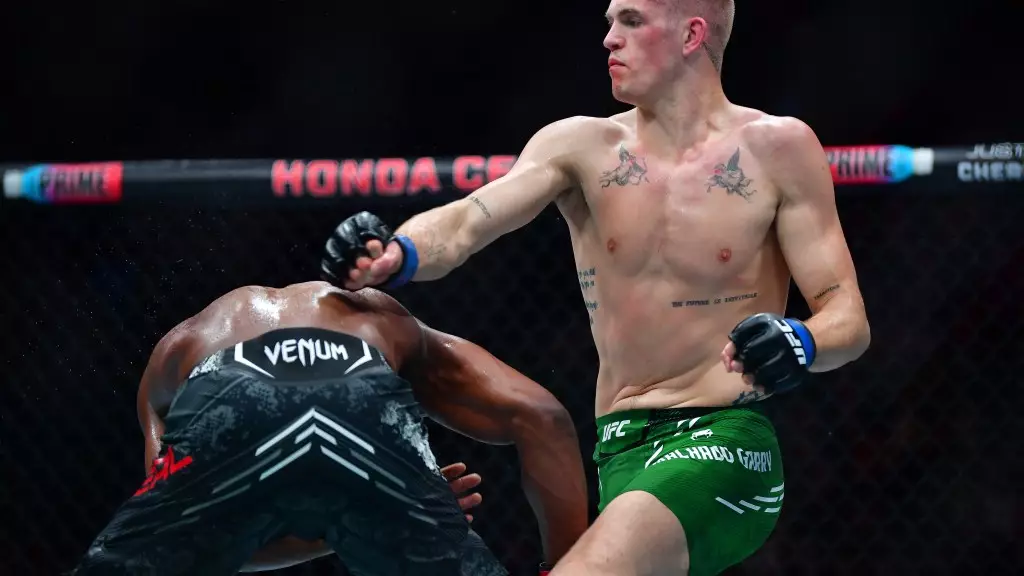When it comes to the world of mixed martial arts, opinions from seasoned fighters carry substantial weight, particularly in the context of matchups like the one we’ve got lined up for UFC 310. Gilbert Burns, a veteran of the welterweight scene and former title challenger, offers a unique perspective on the co-main event featuring Ian Machado Garry and Shavkat Rakhmonov. His firsthand experience training with both opponents at Kill Cliff in South Florida allows for a nuanced understanding of their capabilities, strengths, and weaknesses.
Burns’ assertion hinges heavily on a notable past sparring event where Rakhmonov managed to submit Garry. However, Burns doesn’t let that singular event cloud his judgment; instead, he emphasizes the evolution of fighters. He expresses confidence that Garry has significantly progressed since their previous interactions. “The guy that Shavkat finished a year or two ago is not the same guy right now,” he states, highlighting how the fight game is as much about continual improvement as it is about skill sets observed in isolation. This foresight into fighter development could be the linchpin deciding the outcome of their upcoming contest.
One crucial element that Burns points out is the fight’s duration—five rounds could significantly influence strategies and tactics employed by both fighters. While acknowledging Rakhmonov’s wrestling capabilities and boxing skills, he warns that it could be a double-edged sword. “I don’t think his wrestling is good enough to get takedowns whenever he wants,” Burns comments. This statement underlines a common misconception where fans and fighters alike may overemphasize a fighter’s wrestling proficiency without considering context, such as stamina, timing, and the mental aspects of a prolonged fight.
Burns notes that Rakhmonov might be at risk of overestimating his previous victory over Garry. Psychological factors play a vital role in combat sports; confidence can morph into overconfidence, creating vulnerabilities. This lack of awareness could lead Rakhmonov into a strategic misalignment where he underestimates Garry’s current form or overexerts himself. In combat sports, the ability to adapt in real-time often dictates the fight’s outcome—something many high-level competitors must keep in mind.
Reflecting on his position, Burns expresses an admiration for both fighters, which adds credibility to his critiques. His neutrality allows him to objectively analyze both combatants’ strengths and weaknesses rather than succumb to bias. This kind of evaluation exemplifies a mature understanding of the sport where friendships and team affiliations do not cloud judgment.
As UFC 310 approaches and anticipation builds, understanding fighters’ dynamics is essential. Gilbert Burns has illuminated several key factors that will shape the co-main event, from psychological influences and strategic depth to the implications of a lengthy fight. While predictions can be hazardous in a sport where surprises are the norm, evaluating the fight through various angles can offer fans a richer perspective on what to expect in the octagon.

